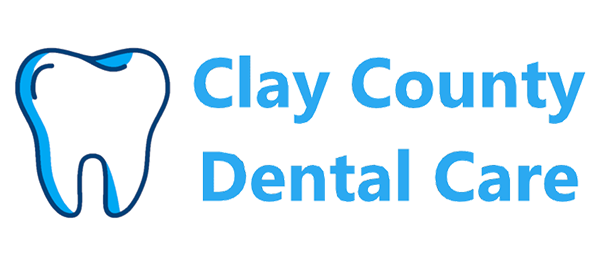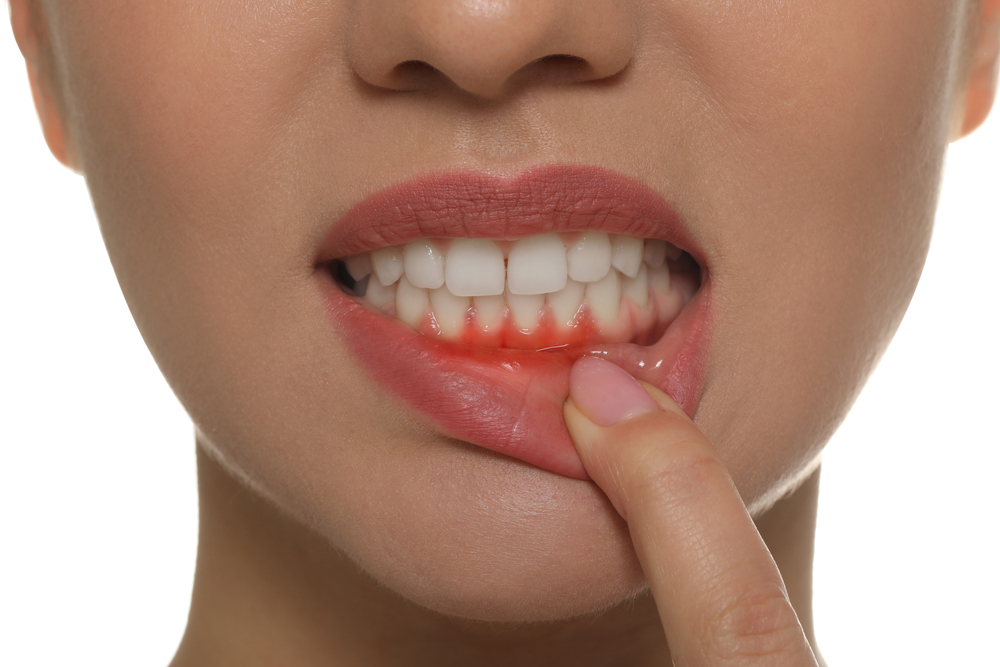Why Are My Gums Swollen?
Swollen gums can be uncomfortable, and sometimes even painful. Learn why your gums are swollen so you can take steps to reduce the inflammation.
The state of our gums can be a key indicator of the health of our mouths. Healthy gums are usually a light pink color and aren’t painful. However, dark red and swollen gums could be a sign that there is an underlying issue. If you have swollen gums, you may be wondering why and what you can do to bring them back to health and ease the pain.
What Can Cause Swollen Gums?
Occasionally, swollen gums may be nothing to be concerned about. If your gums stay swollen consistently, however, there may be a medical issue that needs addressing.
Vitamin Deficiency
A lack of vitamins B and C can lead to swollen gums. These nutrients play a vital role in repairing our skin, teeth, and gums. If you find that you frequently have swollen gums, be sure to incorporate foods like fresh fruits and vegetables, legumes in particular, into your diet on a regular basis.
Gingivitus
Gingivitis occurs when there is a buildup of plaque and other bacteria in the mouth. The bacteria can lead to inflammation of the gums which causes them to feel and look swollen. If the buildup of tartar becomes severe, it cannot be removed by brushing your teeth alone and will need professional dental work.
Hormonal Changes
It’s natural for hormones to ebb and flow, and sometimes these changes in hormone levels can cause inflammation in the gums. This is especially true during pregnancy. The hormonal changes experienced in pregnancy can alter the blood flow to the gums. Excess blood in the gums can cause swelling and irritation.
Oral Infections
HIV and Herpes can result in oral infections that can, in turn, cause gum inflammation or painful sores. While it may be possible to treat the symptoms, addressing the virus that is causing the inflammation is usually the best way to avoid swollen gums in the future.
Food Stuck in Your Teeth
Foods like popcorn can easily get stuck in the teeth. This can irritate the gums and cause them to start swelling. Inflammation caused by stuck food is easier to treat because the swelling will usually go down once you clean your teeth and remove the stuck food particles.
Root Fracture
A tooth fracture that exposes the root of the tooth can be very painful. The sensitive insides of the tooth can be vulnerable to bacteria in the mouth. This increases the risk of cavities as well as gum inflammation nearby.
Tooth Decay
Tooth decay is relatively common and can happen progressively over time. Untreated tooth decay can eventually lead to a dental abscess that can inflame the surrounding gums. Proper dental treatment will be needed to reduce the inflammation in the gums and treat tooth decay. Tooth decay, fortunately, can usually be prevented with regular brushing, flossing, and visits to the dentist.
How To Treat Swollen Gums
Depending on the cause of your swollen gums, the treatment options will differ. Here are the most common ways to treat swollen gums.
At-Home Dental Care
At-home dental care is usually the first course of action when reducing gum inflammation. Flossing regularly after meals and brushing your teeth at a minimum of twice per day can be a great way to prevent the buildup of bacteria and keep your mouth healthy and pain-free. Some other at-home treatments include using an anti-septic oral rinse, placing a warm compress over your mouth to reduce swelling, and drinking lots of water to stimulate saliva production in the mouth to fight off bacteria.
Antibiotics
If an infection is the cause of your gum swelling, a course of antibiotics may be needed to kill the unhealthy bacteria. While antibiotics should not be overused because they can also kill healthy bacteria, they’re the fastest way to eliminate harmful bacteria and reduce the inflammation they caused.
Root Planing or Scaling
If the plaque buildup in your mouth cannot be removed by brushing your teeth, you will need to visit a dentist and get a root planing or scaling treatment. This involves a deep cleaning of your teeth and gums to get rid of the tartar or hardened minerals in your mouth. Once your mouth of been cleaned, the swelling of the gums should subside.
Regular Dental Cleanings
Along with regular at-home care, dental cleanings every six months will be necessary to further prevent any unhealthy inflammation in your mouth. A dentist can see your mouth in more detail during cleaning and get those spots in your mouth that are often missed when you brush or floss at home.
Our Doctors
Meet our Family of Dentists
Dr. Standish has been serving Clay County patients at Eagle Harbor Dental for over 40 years. His daughters Dr. Kelly & Dr. Erin joined the practice and they’ve been creating beautiful smiles as a family ever since. With extensive educations and memberships, our dentists are the best that Fleming Island has to offer.





We've Got You Covered
Insurance We Accept
Don't see your insurance listed? No worries! If you have a PPO plan, you can use it here.
Contact us
to verify your coverage
Ready to get started?
Book your appointment
Give us a call
(904) 269-6558
or send us a message using the form below










